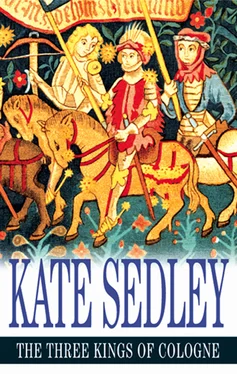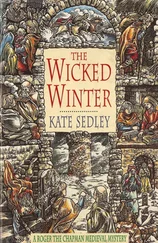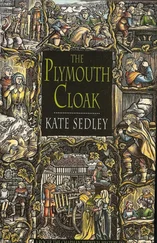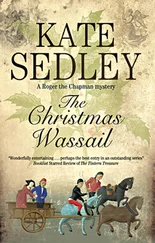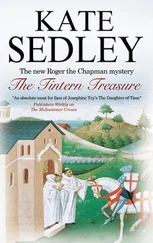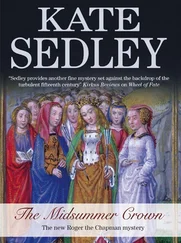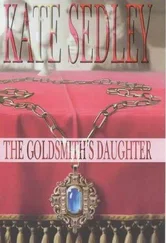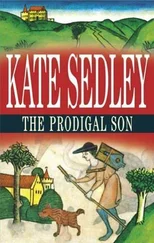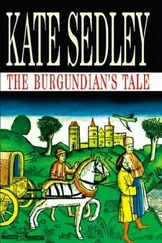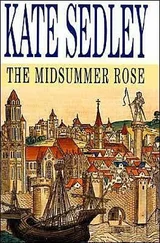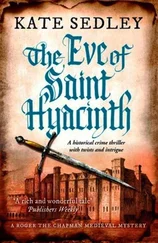Kate Sedley - The Three Kings of Cologne
Здесь есть возможность читать онлайн «Kate Sedley - The Three Kings of Cologne» весь текст электронной книги совершенно бесплатно (целиком полную версию без сокращений). В некоторых случаях можно слушать аудио, скачать через торрент в формате fb2 и присутствует краткое содержание. Жанр: Исторический детектив, на английском языке. Описание произведения, (предисловие) а так же отзывы посетителей доступны на портале библиотеки ЛибКат.
- Название:The Three Kings of Cologne
- Автор:
- Жанр:
- Год:неизвестен
- ISBN:нет данных
- Рейтинг книги:5 / 5. Голосов: 1
-
Избранное:Добавить в избранное
- Отзывы:
-
Ваша оценка:
- 100
- 1
- 2
- 3
- 4
- 5
The Three Kings of Cologne: краткое содержание, описание и аннотация
Предлагаем к чтению аннотацию, описание, краткое содержание или предисловие (зависит от того, что написал сам автор книги «The Three Kings of Cologne»). Если вы не нашли необходимую информацию о книге — напишите в комментариях, мы постараемся отыскать её.
The Three Kings of Cologne — читать онлайн бесплатно полную книгу (весь текст) целиком
Ниже представлен текст книги, разбитый по страницам. Система сохранения места последней прочитанной страницы, позволяет с удобством читать онлайн бесплатно книгу «The Three Kings of Cologne», без необходимости каждый раз заново искать на чём Вы остановились. Поставьте закладку, и сможете в любой момент перейти на страницу, на которой закончили чтение.
Интервал:
Закладка:
‘Fish,’ the Alderman repeated. ‘In particular, stockfish — or cod if you want to give them their new-fangled name. For over a century, we have had a thriving trade with Iceland. In return for our soap and woollen cloth, the Icelanders have sent us all the dried stockfish that we could handle, enabling us to supply our own wants and sell the surplus on over an area stretching as far east as London, south to Salisbury and north to Worcester. But now that trade, too, is in jeopardy. So, you see, we want new markets. And if there is indeed a land west of Ireland, we urgently need to know about it and establish trading links before it’s discovered by anyone else.’
‘Why is the stockfish trade in danger?’ I asked.
‘Because members of the Hanseatic League are offering the Icelanders higher prices for their fish; prices that Bristol merchants can’t afford, either in goods or money.’ My companion heaved a regretful sigh. ‘Unfortunately, the city of Cologne is a part of the League.’
‘Why unfortunately?’
I thought for a moment that John Foster was not going to answer. Then he asked,
‘Can you keep a secret, Master Chapman?’
‘I think so,’ I replied cautiously, not sure what was coming.
The Alderman smiled. ‘In any case, it won’t be a secret for long.’ He continued with apparent irrelevance and an endearing modesty, ‘You may know that I am shortly to become Mayor.’ I nodded. ‘I have therefore come to the conclusion that it is high time I did something for my native city. After talking the matter over with my wife, I have decided to build a chapel and almshouses on a piece of land outside the walls, at the top of Steep Street, which I have recently acquired from the Magdalen nuns. They rented it some years ago from the Abbot of Tewkesbury — a ninety-nine-year lease — intending to use it as a graveyard. But no one has ever been buried there, and the Sisters eventually decided to rid themselves of what has become an encumbrance. So, after some negotiations, the land is now mine. Oh, I know what you’re thinking!’ He didn’t: at that moment, my mind was a total blank. ‘You’re thinking — and you’d be right — that Bristol is already blessed with a number of excellent almshouses, amongst them those founded by my good friends, William Spencer and Robert Strange, not to mention the ancient Gaunts’ Hospital. But we all have the arrogance to want our names to live on after we have gone to meet our Maker.’
‘A … a very noble enterprise,’ I agreed somewhat stiffly. ‘But … but, forgive me, what has this to do with our previous conversation? With the fact that Cologne is a member of the Hanseatic League?’
Alderman Foster chuckled. ‘Of course, I was forgetting. I mentioned, I think, that I mean to have a chapel built as well as the almshouses. When it is finished — and who knows when that might be? Our English stonemasons are not noted for their swiftness.’
‘But splendid craftsmen,’ I put in with what I hoped was a twinkle in my eye.
‘Of course,’ he concurred gravely, but with an answering twinkle. ‘That goes without saying. So! When my chapel is finally completed, I shall have it dedicated to the Three Kings of Cologne. If there is still trouble with the League, I anticipate some opposition, but I am determined to have my way.’
‘The Three Kings of Cologne,’ I murmured. ‘The Magi? The Three Wise Men?’
‘Indeed. In the twelfth century, their remains were taken from Milan to Cologne by the Holy Roman Emperor, Frederick Barbarossa himself. Melchior, King of Nubia and Arabia, gave gold to the Christ Child as a symbol of His kingship. Caspar, King of Tarsus and Egypt, gave frankincense, as a tribute to His godhead. And Balthazar, King of Godolu and Seba, gave myrrh, which presaged His death. In the east, myrrh is used for embalming corpses.’
‘It will certainly be unusual,’ I said. ‘To the best of my knowledge, there is no other church or chapel with such a dedication.’
‘I know of none,’ he answered cheerfully. ‘It will certainly stir up some controversy. But, as I say, that’s for the future. The land itself has to be cleared first; it’s very overgrown. I shall set the workmen to start on that as soon as the better weather comes. Mid-April or early May. Perhaps a little earlier if we should have a clement spring. Who can tell? Now, let me buy you another beaker of ale and then I’ll bid you goodnight. You must be wanting to get home to your family.’
I suppressed a grimace and thanked him, but could not forbear from asking, ‘Why have you chosen me for these confidences, Alderman?’
He didn’t pretend not to understand me, but replied frankly, ‘I like you. I was impressed by the way you solved that little mystery down at Wells last year. My kinswoman has informed me of the outcome — in the strictest confidence, of course. And I hear rumours that you have a reputation for that sort of thing. You have, I believe, worked for His Grace, the Duke of Gloucester, on occasions. You are not quite the simple pedlar you pretend to be. And who knows? I might have need of your services myself one day.’
It was almost as if the Alderman had been granted second sight. For, two months later, when the woman’s body was discovered in the ground at the top of Steep Street, and the nuns had disowned it, John Foster felt himself to be responsible for it. The land was now his, and the poor creature had most certainly never received a Christian burial, for when the skull was lifted, it was found to have a great hole at the back, plainly indicating that its owner had been battered to death by some blunt instrument. Whoever the woman was, there was no doubt whatsoever that she had been murdered.
Two
It was another two days after the discovery of the body that I received a request from Alderman Foster to visit him at home. The messenger was a scruffy urchin whom I recognized as a regular scavenger in the central drain that ran along the middle of the roadway.
‘Oi! Master Foster wants t’ see you.’
The April weather had turned cold again after several days of springlike warmth, a chill wind sweeping the streets, sending dust and bits of dried onion skin skimming along the ground, whistling up through cracks in the floorboards and under doors and making me reluctant to get out of bed in the morning. Fortunately for the state of my finances, Adela and the children made it impossible for me to turn over and snatch another half hour’s sleep, the former shaking me vigorously before getting out of bed herself, and the latter jumping all over me. That particular morning I had been roused not only to wakefulness but to fury by Adam’s instructions to his siblings to ‘kick him in the nuts!’
‘Adam!’ I roared, heaving myself into a sitting position and thereby dislodging both Nicholas and Elizabeth from the bed, so that they tumbled on to the floor. All three immediately set up a wail that brought Adela hotfoot back into the room, anxious to know the cause of the disturbance.
I repeated Adam’s remark and demanded to know where he’d got hold of such expressions. ‘He’s only two!’
‘He’ll be three in a couple of months’ time,’ my wife pointed out, but could hardly speak for laughing, which she tried valiantly but unsuccessfully to turn into a fit of coughing.
In the end, I could see the funny side of things myself, swung my feet out of bed and kissed all three children soundly before shooing them from the bedchamber while I dressed.
With the coming of the lighter nights and warmer days, life had eased considerably and, as a family, we were again on friendly terms, the children able to play out of doors in the tiny yard at the back of the house, or upstairs during the day without freezing to death. And until this particular morning, when, in typically English fashion, winter had once more interrupted spring, I had been content to be out on the road shortly after sunrise and the opening of the city gates, hawking my wares in the hamlets and villages around Bristol, sometimes going as far as Bath or Gloucester and staying a night, sometimes two as necessity demanded, away from home. This morning, however, with the suspicion that I had a rheum coming on, judging by a sore throat and runny nose, I had loitered over breakfast and was only just filling my pack with a new stock of goods, purchased the previous day from various ships along the Backs, by the time Adela was ready to teach the two elder children their numbers and letters. Their hornbooks were laid ready on the kitchen table and she was obviously growing impatient with my continued presence.
Читать дальшеИнтервал:
Закладка:
Похожие книги на «The Three Kings of Cologne»
Представляем Вашему вниманию похожие книги на «The Three Kings of Cologne» списком для выбора. Мы отобрали схожую по названию и смыслу литературу в надежде предоставить читателям больше вариантов отыскать новые, интересные, ещё непрочитанные произведения.
Обсуждение, отзывы о книге «The Three Kings of Cologne» и просто собственные мнения читателей. Оставьте ваши комментарии, напишите, что Вы думаете о произведении, его смысле или главных героях. Укажите что конкретно понравилось, а что нет, и почему Вы так считаете.
